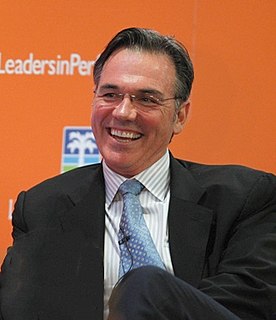A Quote by John J. Sweeney
A core part of the global market is what might be called the 'Nike Economy' - footloose companies that play countries against one another while seeking subcontractors with the lowest wages and cheapest conditions.
Related Quotes
Firms gain comparative advantage from how good their people are. Retaining and attracting talent is a key point of competitive advantage in the global economy. We are seeing that play out, and there are implications for Australia, too. The idea that companies now compete on who can pay their workers the lowest - that's all changing.
The competitive pressure to produce, buy, and sell to our global multi-national companies is so intense that contractors in supply chains are motivated to pay low wages, intensify exploitative conditions, keep workers fearful with insecure work contracts, or simply sack workers who have formed a union to fight back.









































